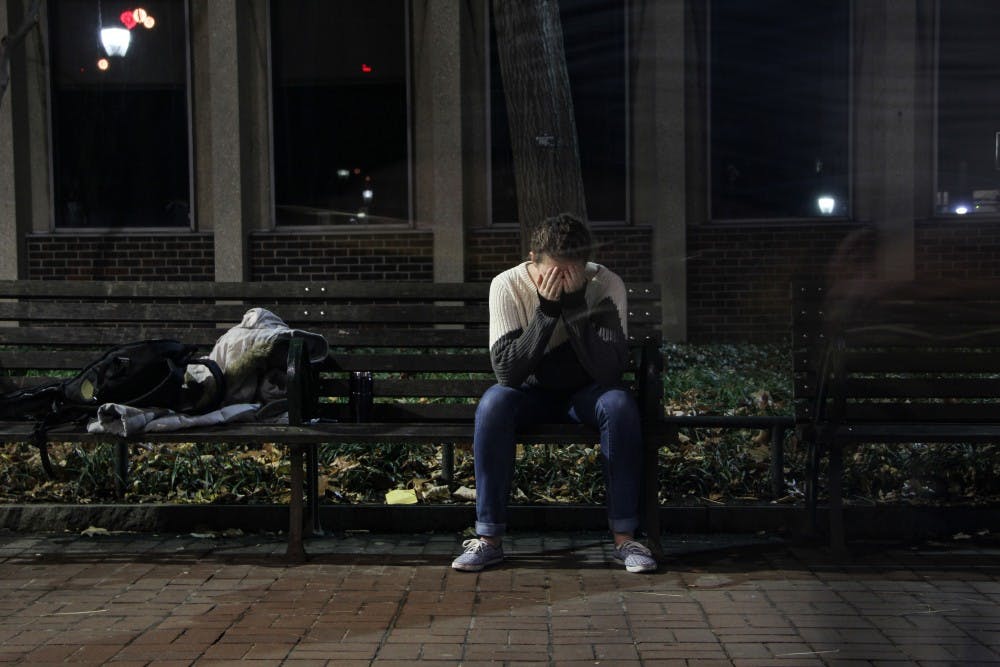Is there a difference between “I’m so sad” and “I’m so depressed?” Many people might say no, insisting that these two words are easily interchangeable.
It’s all too common to associate sadness with depression, but these two psychological states are in fact different and very distinguishable. Sadness is an integral component of depression, but by no means are they the same.
Unfortunately, many people who struggle with depression may assume that they are merely experiencing normal emotions of sadness, thereby delaying or prolonging necessary treatment. On the contrary, people who are sad often wrongfully self-diagnose themselves with depression.
Pervasive sadness is the most common symptom of depression. According to the DSM-5, an individual must experience five or more of the following symptoms during a two-week period to be diagnosed with depression, and at least one of the symptoms must be either of the first two:
1. "Depressed mood most of the day, nearly every day.
2. Markedly diminished interest or pleasure in all, or almost all, activities most of the day, nearly every day.
3. Significant weight loss when not dieting or weight gain, or decrease or increase in appetite nearly every day.
4. A slowing down of thought and a reduction of physical movement (observable by others, not merely subjective feelings of restlessness or being slowed down).
SEE MORE FROM BRIDGET YU:
5. Fatigue or loss of energy nearly every day.
6. Feelings of worthlessness or excessive or inappropriate guilt nearly every day.
7. Diminished ability to think or concentrate, or indecisiveness, nearly every day.
8. Recurrent thoughts of death, recurrent suicidal ideation without a specific plan, or a suicide attempt or a specific plan for committing suicide."
Put simply, depression is not simply extreme or prolonged sadness. Sadness is a normal emotion, whereas depression is an abnormal emotional state. The latter is a mental illness, and people with depression are oftentimes sad about almost everything in their lives. In many cases, depression results from a triggering event, situation, or loss. However, a trigger is not always needed, and sometimes there lacks a clear, identifiable cause; people who are depressed often claim that they “feel sad for no reason.”
You can’t tell someone who feels depressed to “try to be happy” or to “just focus on the positive things,” because mental illnesses don’t work that simply. Someone who is sad might be able to just reverse their emotions and “snap out of it,” but not someone who is depressed.
I have personally spoken with people who struggle every day with depression, and they often note that they dislike when people undervalue their mental illness by saying things like “I’m feeling sad today after my final; maybe I’m depressed, too.” It makes them feel like their condition is something that everyone struggles with on a daily basis, on and off, depending on mood and circumstance — but this is far from the case. People who are truly depressed should not be made to feel like their condition is undervalued just because sadness is an emotion that everyone experiences from time to time.
So just remember that if you are basing your “depression” off of having a rough day or a low exam score, then it’s probably not depression. Let’s not confuse a mental illness with a normal emotion, because that only perpetuates the negative stigma around mental health, further discrediting a very real condition that people struggle with on a daily basis. Additionally, mislabeling depression as mere sadness will only prevent or delay treatment of a serious mental illness that should be addressed and treated as such.

BRIDGET YU is a College sophomore from Los Angeles, CA studying Biological Basis of Behavior. She plans to attend medical school and specialize in psychiatry. Her email address is bridgtyu@sas.upenn.edu.









